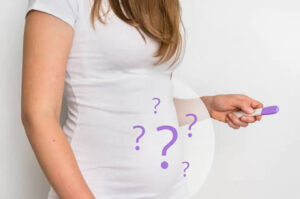
Endometriosis & Why It Sometimes Keeps Hurting — Even After Treatment
What is endometriosis? Doctors often treat endometriosis with hormonal therapy or surgery (to remove the abnormal tissue). But here’s the thing: many people don’t get

Endometriosis | Why the Delay in Diagnosis?
Endometriosis Affects 1 in 10 Women of Reproductive Age And yet the delay in diagnosis hovers around 8.5 years (Barbieri, 2017; Ballard, 2006), meaning that,

How Smoking Affects Bladder Health
Bladder Health Month and the Great American Smokeout – November 21st In honor of both, today we are going to cover how smoking affects bladder health

Could Your Lube be Hurting You?
Have You Been Wondering Could Your Lube be Hurting You? From alleviating vaginal dryness to improving anal play, choosing the right lube is important Personal

Does Endometriosis Affect Fertility and Pregnancy?
How Does Endometriosis Affect Fertility and Pregnancy? As we continue our series about endometriosis, today we address how endo might affect fertility and pregnancy. Endometriosis

